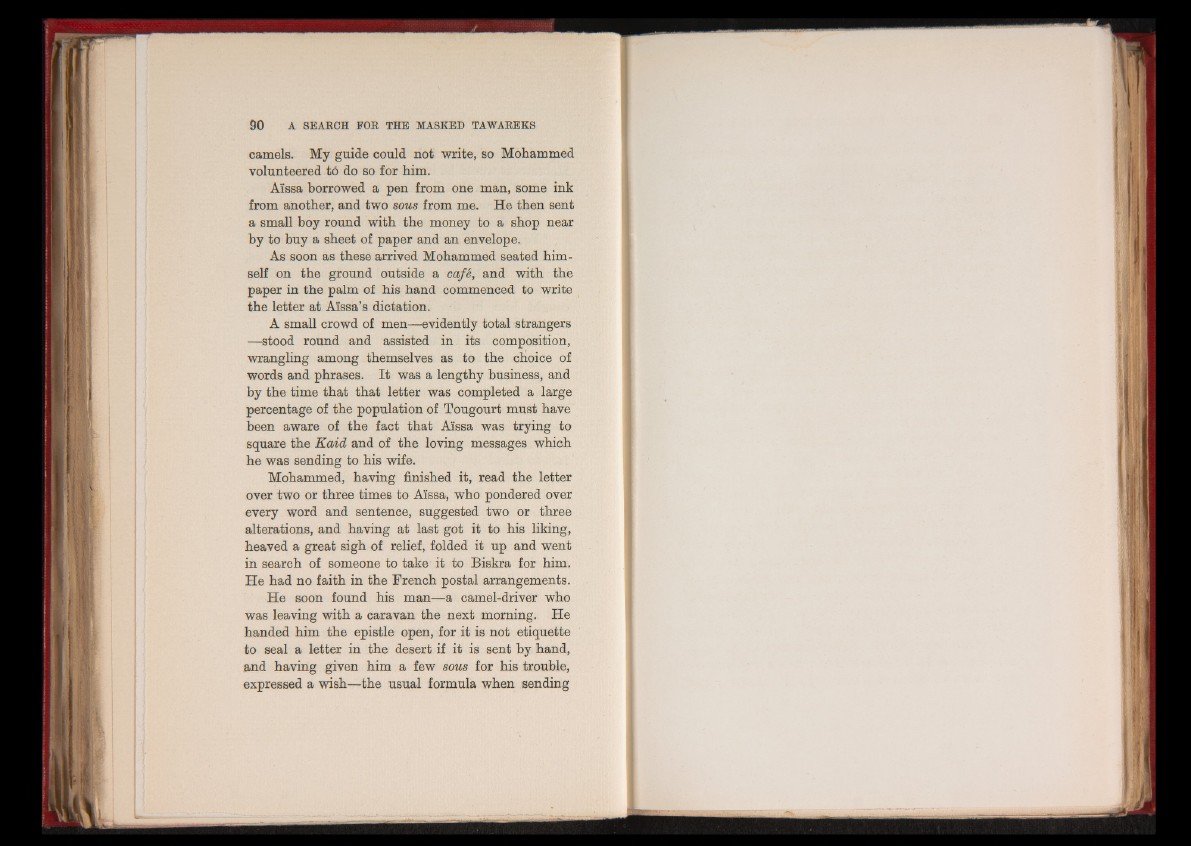
camels. My guide could not write, so Mohammed
volunteered t6 do so for him.
Aissa borrowed a pen from one man, some ink
from another, and two sous from me. He then sent
a small boy round with the money to a shop near
by to buy a sheet of paper and an envelope.
As soon as these arrived Mohammed seated himself
on the ground outside a cafe, and with the
paper in the palm of his hand commenced to write
the letter at Aissa’s dictation.
A small crowd of men—evidently total strangers
—stood round and assisted in its composition,
wrangling among themselves as to the ctioice of
words and phrases. It was a lengthy business, and
by the time that that letter was completed a large
percentage of the population of Tougourt must have
been aware of the fact that Aissa was trying to
square the Kaid and of the loving messages which
he was sending to his wife.
Mohammed, having finished it, read the letter
over two or three times to Aissa, who pondered over
every word and sentence, suggested two or three
alterations, and having at last got it to his liking,
heaved a great sigh of relief, folded it up and went
in search of someone to take it to Biskra for him.
He had no faith in the French postal arrangements.
He soon found his man—a camel-driver who
was leaving with a caravan the next morning. He
handed him the epistle open, for it is not etiquette
to seal a letter in the desert if it is sent by hand,
and having given him a few sous for his trouble,
expressed a wish—the usual formula when sending
1
a